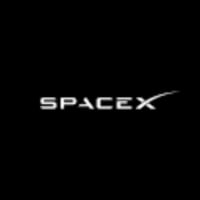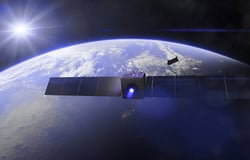SpaceX was founded under the belief that a future where humanity is out exploring the stars is fundamentally more exciting than one where we are not. Today SpaceX is actively developing the technologies to make this possible, with the ultimate goal of enabling human life on Mars.
SR. SATELLITE POLICY MANAGER, APAC (STARLINK)
SpaceX is leveraging our experience in building rockets and spacecraft to deploy Starlink, the world’s most advanced broadband internet system. Starlink is the world’s largest satellite constellation that provides fast, reliable internet to millions of users worldwide. We design, build, test, and operate all parts of the system – thousands of satellites, consumer receivers that allow users to connect within minutes of unboxing, and the software that brings it all together. Our customers currently include teachers in the most remote parts of the Amazon, researchers in Antarctica, digital nomads who travel via RV, emergency responders, commercial airlines, cruise lines, and residential users who live in more rural or developing areas. We’ve only begun to scratch the surface of Starlink’s potential global impact and are looking for best-in-class engineers to help maximize Starlink’s utility for communities and businesses around the globe.
Telecommunication is a heavily regulated business and this position will lead SpaceX’s regulatory and policy strategy to ensure these regulations enable and protect the provision of this ground-breaking service. This position will require you to apply expertise and focus to advance Starlink’s licensing and spectrum position in front of national and global regulators and government bodies, with a particular focus on the Asia Pacific (APAC) region.
RESPONSIBILITIES:
- Advise the Starlink team on the laws, regulations, and policies that impact the business in APAC
- Develop and advocate for broadband and spectrum policies that will further SpaceX’s business objectives and Starlink’s success
- Represent and promote the company’s positions before regulatory agencies, regulators, legislatures, and regional organizations
- Draft pleadings, letters, and other advocacy pieces to promote SpaceX’s policy positions
- Research and advise the Starlink team regarding other relevant policy issues
- Advocate to optimize prospective satellite and telecoms regulatory frameworks and policy environments in alignment with SpaceX business objectives
- Provide strategic regulatory advice and advocacy support to business development efforts, which may include:
- Opportunities for regional/national partnerships
- Global satellite expansion plans in support of the business strategy for new satellite market requirements and new service offerings initiatives
BASIC QUALIFICATIONS:
- Bachelor's degree
- Professional fluency in Japanese
- 10+ years of experience working with government agencies and policies
PREFERRED SKILLS AND EXPERIENCE:
- 5+ years of experience working in telecommunications policy
- Expert knowledge of telecommunications business and regulatory issues in APAC
- Strong knowledge of broadband, ISP, and/or satellite industry practices
- Strong understanding of broadband policy
- Strong understanding of spectrum use and policies
ADDITIONAL REQUIREMENTS:
- Willingness to travel approximately 50% of the time
- Willingness to work weekends and extended hours as needed
SpaceX is an Equal Opportunity Employer; employment with SpaceX is governed on the basis of merit, competence and qualifications and will not be influenced in any manner by race, color, religion, gender, national origin/ethnicity, veteran status, disability status, age, sexual orientation, gender identity, marital status, mental or physical disability or any other legally protected status.

What We Do
SpaceX designs, manufactures and launches the world’s most advanced rockets and spacecraft. The company was founded in 2002 by Elon Musk to revolutionize space transportation, with the ultimate goal of making life multiplanetary.
SpaceX has gained worldwide attention for a series of historic milestones. It is the only private company ever to return a spacecraft from low-Earth orbit, which it first accomplished in December 2010. The company made history again in May 2012 when its Dragon spacecraft attached to the International Space Station, exchanged cargo payloads, and returned safely to Earth — a technically challenging feat previously accomplished only by governments. Since then Dragon has delivered cargo to and from the space station multiple times, providing regular cargo resupply missions for NASA.








